10 Best Herbal Tinctures For Boils

Herbal tinctures are concentrated liquid extracts made from various plants and are often used for their medicinal properties.
They can be particularly effective for treating boils due to their antimicrobial and anti-inflammatory properties. Common herbs used in tinctures for boils include echinacea, goldenseal, and calendula, which help reduce infection and soothe inflamed skin. When applied topically, these tinctures can help draw out impurities and promote healing.
However, it is important to consult a healthcare professional before using herbal tinctures, especially if the boil is large, painful, or shows signs of spreading infection.
Table of Contents
- 1. St. john's wort (Hypericum perforatum)
- 2. Echinacea (Echinacea purpurea)
- 3. Aloe vera (Aloe barbadensis)
- 4. German chamomile (Chamomilla recutita)
- 5. Blessed thistle (Cnicus benedictus)
- 6. Bloodroot (Sanguinaria canadensis)
- 7. Mountain arnica (Arnica montana)
- 8. Stinging nettle (Urtica dioica)
- 9. White cedar (Thuja occidentalis)
- 10. Marigold (Calendula officinalis)
1. St. john's wort (Hypericum perforatum)

Hypericum perforatum, commonly known as St. John's Wort, is traditionally used in herbal medicine for its potential anti-inflammatory and antimicrobial properties.
While it is more widely recognized for its use in treating mild depression, some studies suggest that its tinctures may help reduce the symptoms of skin infections, including boils, due to their ability to inhibit bacterial growth. When applied topically, hypericum perforatum tinctures can help soothe inflammation and promote healing of the affected area. However, it is important to note that these tinctures should not be used internally without consulting a healthcare professional, as they may interact with certain medications.
Always perform a patch test before using any herbal tincture to ensure there is no allergic reaction.
2. Echinacea (Echinacea purpurea)

Echinacea purpurea herbal tinctures are traditionally used to support the immune system and may help in the treatment of boils by reducing inflammation and promoting healing.
These tinctures contain compounds such as alkamides, caffeic acid derivatives, and polysaccharides, which are believed to have antimicrobial and anti-inflammatory properties. While echinacea is not a direct antibiotic, it may assist in the body's natural defense mechanisms against bacterial infections that cause boils. It is often used as a complementary therapy alongside conventional treatments, but it should not replace professional medical advice.
Always consult a healthcare provider before using echinacea tinctures, especially for severe or persistent boils.
3. Aloe vera (Aloe barbadensis)
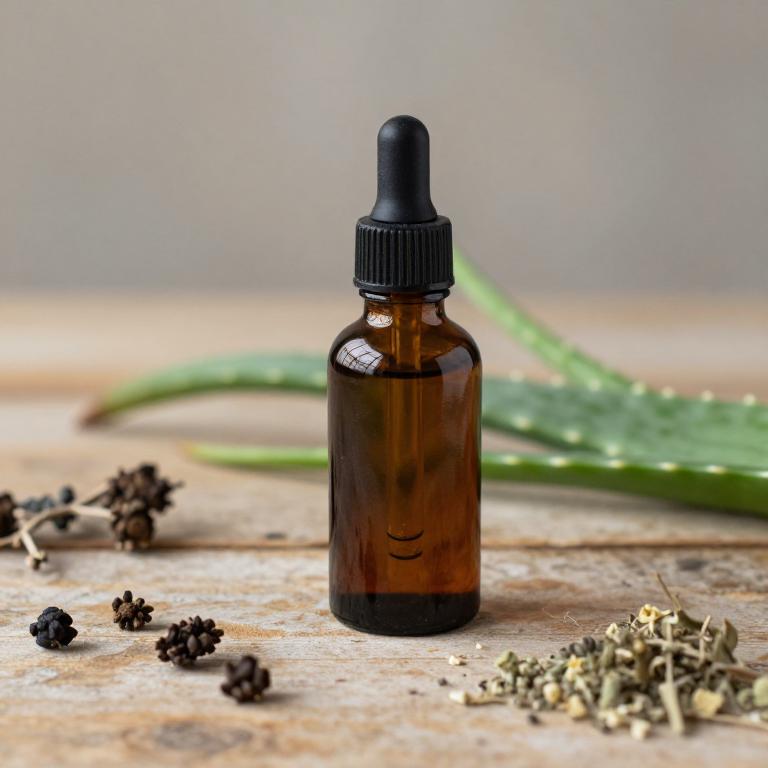
Aloe barbadensis, commonly known as aloe vera, has been widely used for its soothing and healing properties, particularly in the form of herbal tinctures for treating boils.
These tinctures are typically made by extracting the gel from the aloe leaf and combining it with alcohol to create a concentrated herbal remedy. Aloe vera tinctures are believed to help reduce inflammation, promote skin healing, and prevent infection due to their antimicrobial and anti-inflammatory compounds. When applied topically to boils, they may help soothe pain, reduce redness, and accelerate the healing process.
However, it is important to consult a healthcare professional before using aloe tinctures, especially if the boil is severe or shows signs of infection.
4. German chamomile (Chamomilla recutita)
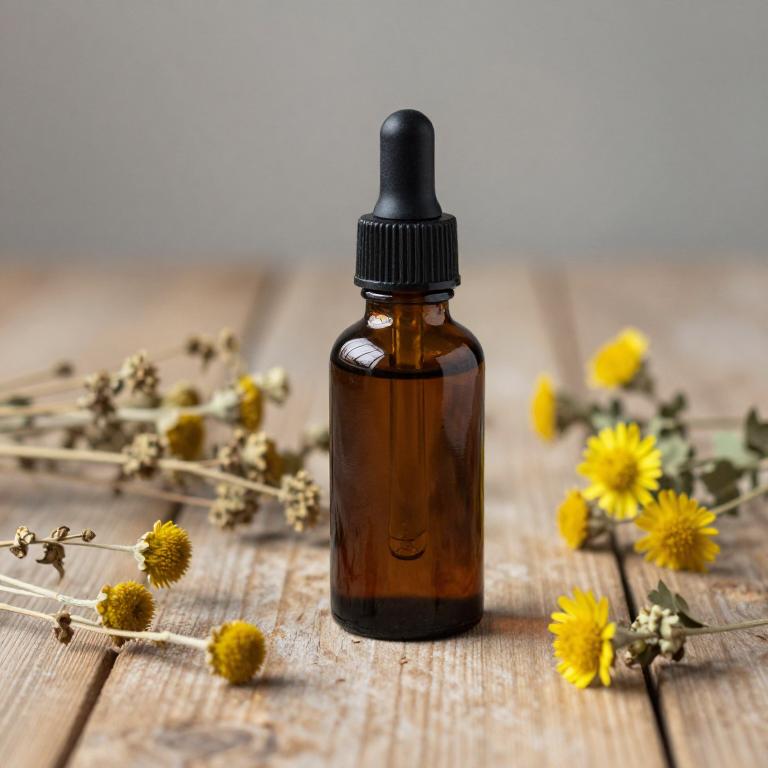
Chamomilla recutita, commonly known as German chamomile, is often used in herbal tinctures to address skin conditions such as boils due to its anti-inflammatory and antimicrobial properties.
These tinctures are typically prepared by steeping the dried flowers of the plant in alcohol, allowing the active compounds like bisabolol and chamazulene to be extracted. When applied topically, chamomile tinctures can help reduce redness, swelling, and infection associated with boils. However, it is important to dilute the tincture properly before use to avoid skin irritation.
While generally safe for external use, individuals with allergies to plants in the Asteraceae family should exercise caution and consult a healthcare provider before using chamomile tinctures.
5. Blessed thistle (Cnicus benedictus)

Cnicus benedictus, also known as St. Benedict's thorn, has been traditionally used in herbal medicine for its potential anti-inflammatory and antimicrobial properties.
Tinctures made from this plant are often employed to treat skin conditions, including boils, due to their ability to reduce infection and promote healing. The active compounds in Cnicus benedictus may help soothe redness, swelling, and pain associated with boils. However, it is important to consult a healthcare professional before using these tinctures, as they may interact with other medications or have side effects.
While some anecdotal evidence supports its use, more scientific research is needed to fully understand its efficacy and safety for treating boils.
6. Bloodroot (Sanguinaria canadensis)
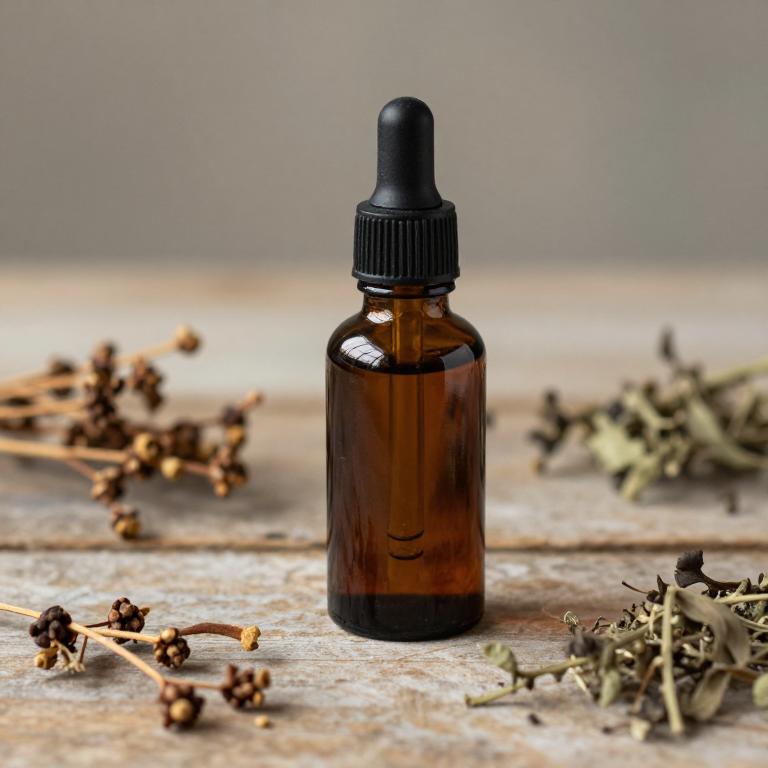
Sanguinaria canadensis, also known as bloodroot, is a plant that has been traditionally used in herbal medicine for its potent properties.
When prepared as a tincture, it can be applied topically to treat boils due to its antimicrobial and anti-inflammatory effects. The active compounds in bloodroot, such as sanguinarine, help reduce bacterial growth and promote the drainage of abscesses. However, it is important to note that bloodroot tinctures can be toxic if ingested, so they should only be used externally under the guidance of a qualified herbalist or healthcare provider.
Due to its strength, it is typically recommended for short-term use and should be diluted properly to avoid skin irritation.
7. Mountain arnica (Arnica montana)
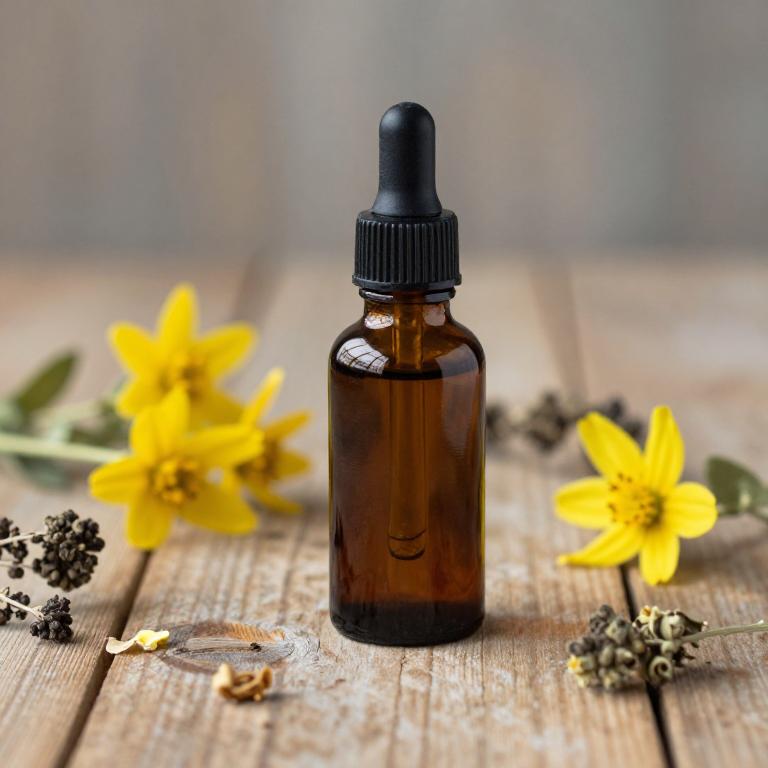
Arnica montana herbal tinctures are commonly used for their anti-inflammatory and analgesic properties, making them a popular natural remedy for boils.
These tinctures contain potent compounds such as helenalin and other sesquiterpene lactones, which can help reduce swelling, redness, and pain associated with skin infections like boils. When applied topically, arnica tinctures may promote healing by improving circulation and reducing the risk of secondary infections. However, it is important to dilute the tincture with a carrier oil or water to avoid skin irritation, as undiluted arnica can be harsh on sensitive skin.
While arnica montana may offer relief for boils, it should not replace professional medical treatment, especially for severe or persistent infections.
8. Stinging nettle (Urtica dioica)

Urtica dioica, commonly known as stinging nettle, has been traditionally used in herbal medicine for its anti-inflammatory and detoxifying properties.
When prepared as a tincture, Urtica dioica can be applied topically to boils to help reduce inflammation and promote healing. The tincture works by stimulating circulation and supporting the body’s natural healing processes. It is often recommended for those seeking a natural alternative to conventional treatments for skin infections.
However, it is important to consult with a healthcare professional before using it, especially if you have sensitive skin or are taking other medications.
9. White cedar (Thuja occidentalis)
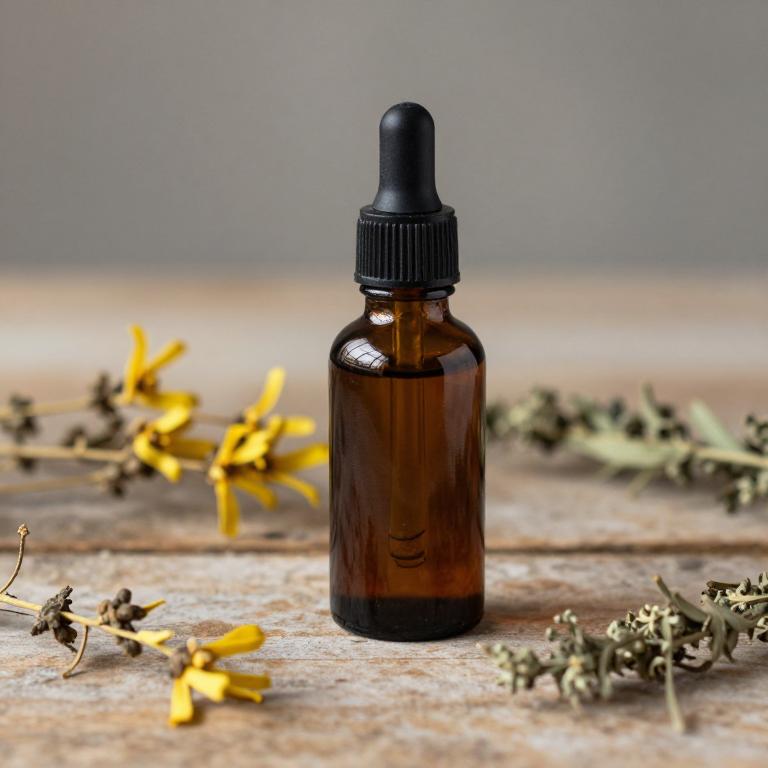
Thuja occidentalis, also known as eastern arborvitae, is a popular herb used in traditional herbal medicine, and its tincture is sometimes utilized for its potential anti-inflammatory and antimicrobial properties.
When applied topically, thuja tinctures may help reduce the severity of boils by targeting the bacterial infection and promoting skin healing. However, it is important to note that while some individuals may find relief from using thuja tinctures, there is limited scientific evidence supporting its efficacy for treating boils. As with any herbal remedy, it should be used with caution and under the guidance of a qualified herbalist or healthcare provider.
Additionally, it is crucial to ensure proper dilution to avoid skin irritation or allergic reactions.
10. Marigold (Calendula officinalis)

Calendula officinalis, commonly known as pot marigold, is a popular herbal remedy used in tincture form to treat boils due to its anti-inflammatory and antimicrobial properties.
These tinctures are typically made by soaking the dried flowers in alcohol, allowing the beneficial compounds to be extracted over time. When applied topically to the affected area, calendula tinctures can help reduce redness, swelling, and infection associated with boils. They are often used as a natural alternative to conventional treatments, especially for those seeking holistic or complementary care.
However, it is important to consult a healthcare professional before using calendula tinctures, particularly if the boil is severe or shows signs of spreading infection.